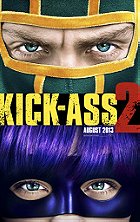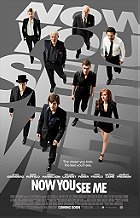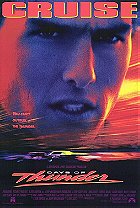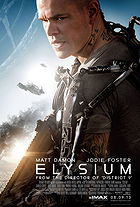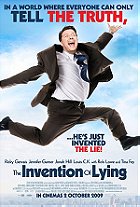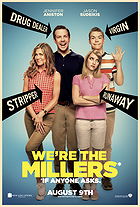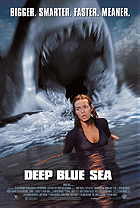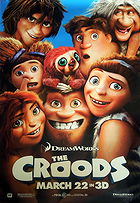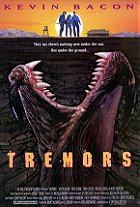To this day, 1993's Jurassic Park stands as one of the all-time greatest blockbusters in history, and its impact on popular culture cannot be overstated. With its Tyrannosaurus-sized box office returns and a bevy of critical acclaim, a sequel was inevitable, yet a follow-up would always be risky due to its predecessor's esteemed reputation. On top of this, 1997's The Lost World: Jurassic Park found director Steven Spielberg at the helm of a film for the first time since winning an Oscar for Schindler's List. Suffice it to say, The Lost World is not the knockout sequel many had hoped for, as it's not as intelligent or thoughtful as the first movie. Nevertheless, taken by itself, this is a skilfully-crafted rollercoaster, showing once again that Spielberg is practically unmatched when it comes to excitement, action and suspense.

Set several years after the events of the first movie, chaos theory mathematician Ian Malcolm (Jeff Goldblum) is approached by billionaire entrepreneur John Hammond (Richard Attenborough) with a proposition. As it turns out, there is more than one island inhabited by dinosaurs - there's a "Site B," where the creatures are free to run wild. And Hammond wants a team of scientists to visit the island to study the animals. Although Malcolm outright refuses, he learns that his palaeontologist girlfriend, Sarah Harding (Julianne Moore), is already on the island, which compels him to reconsider. With the help of documentary producer Nick Van Owen (Vince Vaughn) and engineer Eddie Carr (Richard Schiff), Malcolm travels to the wilds of Jurassic Park to rescue Sarah. Complicating matters is that Hammond's company, In-Gen, is now run by his shifty nephew Peter Ludlow (Arliss Howard), who authorises an expedition to transport dinosaurs from Site B back to the mainland to create a new amusement park. And, of course, the dinosaurs begin to run amok, decreasing everyone's chances of survival.
The Lost World unfortunately lacks its predecessor's thematic undercurrents. The 1993 movie delved into scientific hubris, gene splicing, DNA research, natural selection and the philosophy of man vs. nature. On the other hand, this sequel is less sophisticated - it's more of a B-grade monster action movie. It is fine in this sense, but the script could have used a few more revisions. Character behaviour is sometimes dumb - an experienced hunter manages to get lost by taking a few steps off the trail to relieve himself, and another hunter listens to music through a pair of headphones despite being on a dinosaur-infested island. There are also a handful of awkward moments, including an opening sequence that doesn't quite gel, and a jarring transition between said opening scene and the reintroduction of Malcolm. Not to mention, it's borderline cringe-worthy to see a teen battling raptors with gymnastics moves.

Although the screenplay by David Koepp is technically an adaptation of Michael Crichton's novel of the same name, it has basically nothing in common with the source material, as Koepp creates his own story. Admittedly, The Lost World does borrow a few narrative beats from its predecessor, but Koepp throws in a sufficient amount of new material to keep it from being a simple rehash. Most notably, the film posits that T-Rexes are family-oriented creatures, as a plot point involves a baby Rex being taken away from its loving parents. Koepp's best contribution is allowing a T-Rex to stampede around San Diego, as we get to see what would happen if such a carnivorous beast was brought into human society. The story here is admittedly flimsy, though - most glaring is the lack of a strong motivation for Malcolm, Sarah, Nick and Eddie's trip to the island. Nevertheless, once the movie gets into an agreeable groove, it soars.
No matter the niggling problems with the imperfect screenplay, Spielberg's visual treatment of the material is undeniably sublime. Spielberg infuses The Lost World with a similar flavour to the first movie, foregrounding a sense of awe and a light-hearted adventure spirit. Sequels are often larger and more lavish affairs, and The Lost World does not disappoint, with the dinos being allotted far more screen-time here. The action set-pieces are a lot of fun to watch, showcasing Spielberg's superb flair for mise-en-scène. Lesser films these days use shaky, zoom-heavy photography and fast cutting, but Spielberg and cinematographer Janusz Kaminski employ smooth wide shots to great effect. Like its predecessor, The Lost World also gets dark from time to time; the body count is higher, and the PG-13 rating is earned due to the intensity of several death scenes. Fortunately, the special effects here are nothing short of spectacular. Although a handful of digital effects shots look slightly slipshod, ILM mostly improves on the quality of the CGI dinos from four years prior. Luckily, Spielberg heavily relies on animatronic dinosaurs from Stan Winston's team as opposed to just digitally-created beasts, and they look incredibly realistic in terms of movement and detail. Once again, we believe that the dinosaurs are alive. And John Williams' majestic score tops everything off.

Goldblum was easily the most memorable performer in the original film as the witty, wise-cracking Ian Malcolm. His return here is very welcome, and Goldblum embraces the opportunity - he infects Malcolm with a dry, intellectual wit, and the script gives him many caustic one-liners to disperse with gusto. Julianne Moore, meanwhile, acquits herself well as Sarah, and a young Vince Vaughn (long before he became a one-note funnyman) is decent enough. The standout is the late Pete Postlethwaite, who submits a memorable turn as determined hunter Roland Tembo. It's a great character, and Postlethwaite sunk his teeth into it. Attenborough also makes a strong impression as Hammond, while Joseph Mazzello and Ariana Richards show up for quick cameos to reprise their roles from the original movie.
The Lost World: Jurassic Park doesn't get the credit it deserves. As a standalone action-adventure with dinosaurs, it's an exciting and competently-crafted blockbuster. The cracks begin to show only when it's placed alongside its top-flight predecessor. But even then, The Lost World gets credit for not simply rehashing the 1993 original, as it introduces enough innovation into the series to make it a worthwhile follow-up. Not everything works, and it doesn't reach the dizzying heights of the first film, but it's a solidly enjoyable action-adventure that never bores despite its 130-minute runtime, which is an achievement in itself. It confidently fits the bill of summer popcorn entertainment. And it has aged commendably, with special effects that are still just as convincing all these years later.
7.7/10
 Login
Login
 Home
Home 183 Lists
183 Lists 1670 Reviews
1670 Reviews Collections
Collections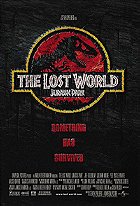
 0 comments,
0 comments, 